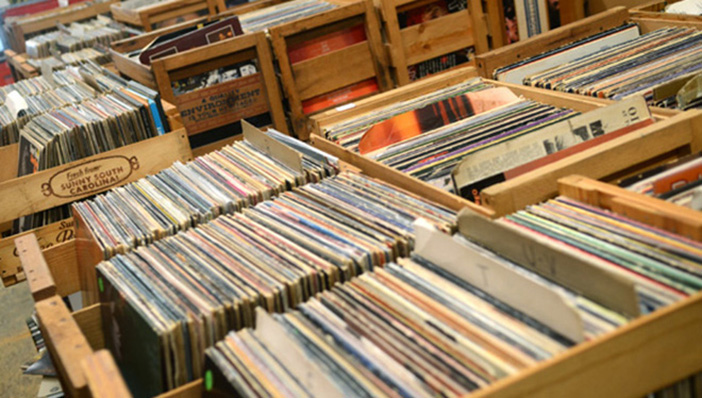When you you dig for records, after you find something you like, it’s worth it to listen to the record again
The question of “What to do with the music that you dig after you’ve sampled from it” is often asked. So here, I’ll introduce a question and answer exchange that took place between a regular member of The BeatTips Community (TBC) and myself.
Question:
“I’ve been recording my records straight to Pro Tools, stopping it, if a song is done, grabbing what I like out of it, while looking at the waveform. And after I got what I want, I just delete the rest of the track. I think this approach may not be the best. How do you do it? Do you not record anything except the sample you want? When you sample from a record and you hear something you like, do you sample it immediately or do you wait for the song to end and then go back and grab it?”
Here was my answer in full:
I assume that you record a song straight into Pro Tools as a means for speeding up the musical process — that’s understandable. But making music isn’t a race against time. Sure, there are some things that can unnecessarily slow down the musical process. However, if you’re going to sample, and you plan on being particularly skilled at it, then you’re going to have to embrace the fact that it calls for a lot of patient listening to music.
I understand exactly what you (and others) are doing and why, but in exchange for saving some memory on your computer, you’re actually decreasing your understanding of the essence of sampling.Thing is, by recording records straight into Pro Tools (or any DAW)
with the conscious intent to essentially throw away what doesn’t interest you, you’re indirectly ignoring one of the most important components of the musical process: listening to music in a revolving capacity, over and over again through various periods.
Recorded music is a reference that presents a timeless musical education. Why not take advantage of this reference?
Unfortunately, this is perhaps a consequence of e-diggin’ or a rush towards a proficiency in sampling. Music is about having an emotional and physical connection. If you decrease that physical connection, you inevitably decrease the emotional aspect as well. Without an emotional connection to the music, you will always be limited to how well you can translate the essence and feeling from the music you sample. Sure, anyone can develop a “technical” proficiency in the science of sampling. But at the end of the day, that’s all you’re gonna get if there’s no real emotional connection or reverence (or at least respectful admiration) for the source material that you sample.
But if you’re picking at music like a vulture, discarding the parts of the song you’re not interested in, like they hold (nor ever held) any other value other than to be sampled, then how can you truly understand the essence of sampling? It’s no accident, nor is it coincidental that the overwhelming majority of music sampled falls between 1965 and 1975. There is a reason for that; there is something about the music itself that is being sampled. If you slice up a song, without any real regard for the song, how will you obtain any of the meaning or essence that the song yields? Furthermore, going forward, how will you be informed about what direction to take if you’re destroying all of the clues?
